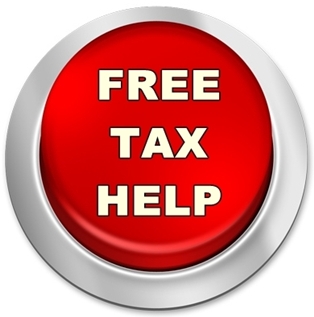
Being self-employed or earning extra cash as a gig worker can be great, but paying higher taxes is not so great. The self-employed and those in the gig economy face additional taxes as a result of their endeavors, and those higher tax rates can really take a toll on their earnings.
Those new to the world of self-employment and gig work are often surprised by these extra taxes, most notably the self-employment tax. Unlike their counterparts in the corporate world, the self-employed must pay both sides of the Social Security and Medicare tax, essentially doubling these obligations.
Depending on how much you make, these higher taxes could be a game changer, but there are ways to turn the tax code to your advantage. While it is true the self-employed face higher taxes, it is also true that they have many tax breaks available. Taking advantage of those tax breaks could lower your tax obligations significantly, potentially saving you hundreds or even thousands of dollars. Glenn Sandler, CPA, the Founder of G.I. Tax Service has given you some tax breaks every self-employed individual and gig worker needs to know about.
The Home Office Deduction
If you have a dedicated office in your home to support your self-employment or gig work activities, you may be able to write off a portion of your utility bills, property taxes, mortgage payments and other homeownership costs. The office must be used solely for your business, but if it is, you could save a lot of money.
There are some very specific requirements for a home office, and it is important to consult with a professional before claiming it. Be sure to document everything about the home office and its use – taking photos of the office space and saving them to your computer or cloud account is always a smart idea.
Medicare Premiums
If you are retired and on Medicare but working as a consultant or gig worker, you may be able to deduct the cost of your Medicare Part B and D premiums. This deduction is available even if you do not itemize your deductions, and this tax break could be quite valuable.
This tax break could become even more valuable in the future, as more retirees reenter the workforce on a part-time basis and others use gig work to supplement their pensions and investment income. Many retirees are not aware that their Medicare premiums could be deductible, so this deduction is often overlooked.
Spousal IRA
Even if you do not qualify for an IRA of your own, your spouse may be able to contribute to a spousal IRA. Many self-employed individuals and gig workers use the spousal IRA to lower their overall tax bills, but it is important to follow the rules.
“It is a good idea to consult an expert or tax preparation specialist before contributing to a spousal IRA, or any retirement account,” Glenn Sandler advised. The rules governing these contributions can be quite complicated, and getting expert advice can help you navigate those choppy waters.
Health Savings Accounts
Healthcare and health insurance are a big deal for the self-employed, and the cost of coverage can be quite high. Without an employer to provide affordable group coverage, self-employed individuals and gig workers are forced to shop on the individual market, where premiums are higher and deductibles and copays are sometimes unaffordable.
By opening a health savings account, gig workers and the self-employed can prepare for these higher costs while claiming a valuable tax deduction. Health savings accounts provide triple tax savings, something that even traditional retirement accounts cannot claim.
The money contributed to a health savings account is fully tax deductible, so gig workers and self-employed individuals can claim an immediate tax deduction. Any money used to pay for approved healthcare expenses is free of tax as well, and the money left over is left to accumulate tax-free.
There are rules governing the use of health savings accounts and their tax deductibility, including having a high-deductible health plan in place. Once again, consulting with a tax expert is a good idea, at least in the beginning. After the account is in place, you can contribute additional funds to it year after year, claiming an annual tax break and lowering your tax liability in the process.
Retirement Plans for the Self-Employed
There are special retirement plans for the self-employed, and contributing to one could save you a ton of cash. Saving for retirement is critical for the self-employed and those in the gig economy since these classes of workers do not have access to traditional 401(k) and pension plans.
What they do have access to are a number of specialized retirement plans, including a special IRA for the self-employed and a solo 401(k) plan. Each of these retirement plans has its own rules and contribution limits, and it is important for self-employed individuals and gig workers to choose the ones that best meet their needs.
Whether you are supplementing your full-time income with a side hustle or making a full-time income as a self-employed individual, it is important to assess your tax situation. The self-employment tax can take a big bite, but there are things you can do to reduce the tab and keep more money in your pocket. The tax breaks listed above can get you started, so you can squeeze more value from your self-employed status.


